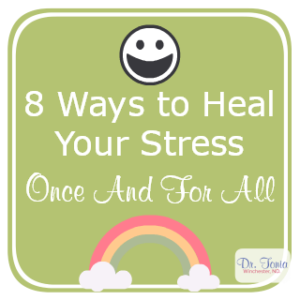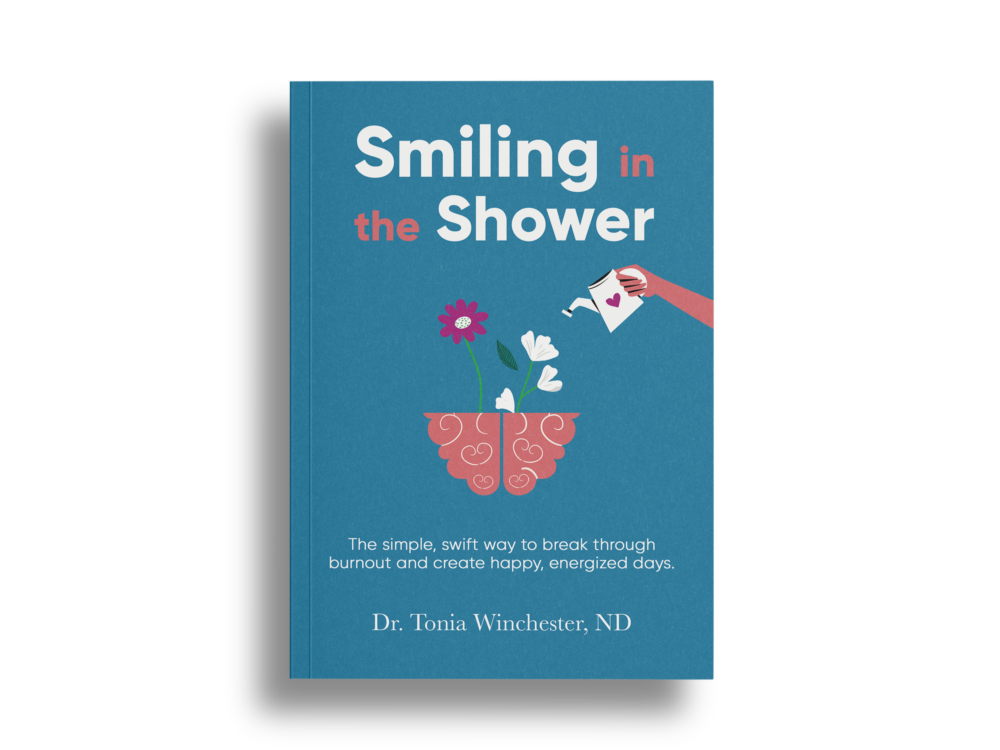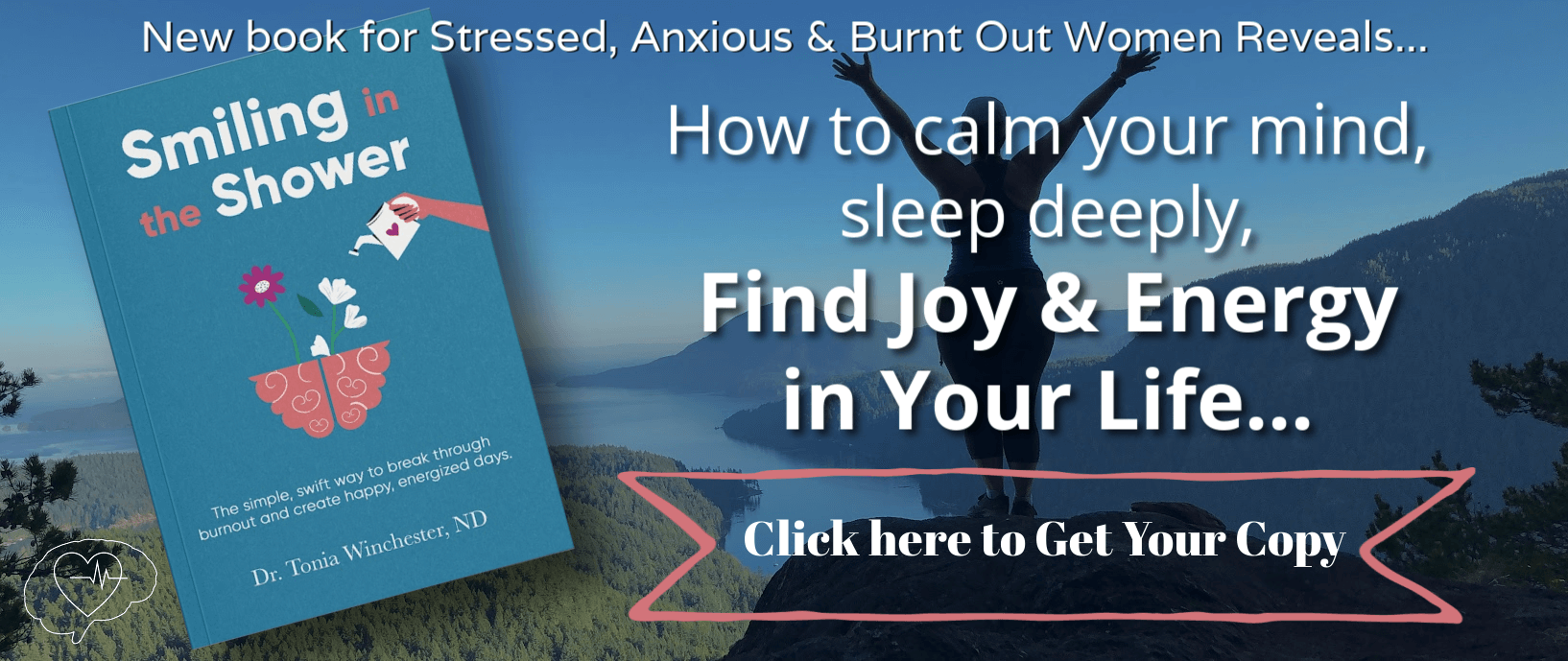 If you’ve been reading these blogs or listening to my podcasts for a while you might be wondering, “Why does that girl spend so much time talking about stress?”
If you’ve been reading these blogs or listening to my podcasts for a while you might be wondering, “Why does that girl spend so much time talking about stress?”
I will answer that question.
But first a little context. I often listen to audios on my commute to work. I just finished a 36-lecture series on neuroanatomy and physiology. Hahaha, you know, just a little light moring listening. It was a good review, and I also learned some new tidbits that are relevant to our lives and health as humans on this planet.
One of the final lectures in the series was all about how stress affects the brain and our immune function. This 30- minute lecture summarized why I talk about stress all the time. Stress detrimentally affects our physiology and prevents us from thriving in our lives, which is what I want for all of us.
This article will summarize that lecture in fun, hip lingo for you! And just because I have a silly way of communicating, know that these ideas are VITALLY muy importante if you want to live a long, luscious, delightful life that lights you up.
And you want that right? I have a feeling the answer is yes otherwise you’d likely be hanging out in other corners of the internet.
As early humans our survival depended on identifying and responding to life-threatening situations. Our systems are DESIGNED for acute and rapid initiations of our fight or flight response.
Sadly in our modern world, our nervous system responds to everyday stressors as if they are life-threatening, which for the most part they are not.
What happens when the stress system is chronically activated?
Ready for the list? Here it is. Chronic Stress:
- Damages the immune system, increasing autoimmune responses. Your risk of autoimmune disease (diabetes type 1, psoriasis, Hashimoto’s thyroiditis, multiple sclerosis, colitis, Crohn’s, rheumatoid arthritis, etc,) goes up.
- Decreases general immune responses, so you’re less likely to be able to fight off invaders (virus, bacteria, parasites) or control healthy populations of organisms in your body from turning on your and causing an infection.
- Staunches DNA repair mechanisms, so you are more likely to produce tumors or cancers.
- Injures your blood vessels, creating scars in the arteries, which the body then needs to scab by filling with cholesterol, leading to scary plaques and artery blockages, increasing the likelihood for heart attacks and strokes.
- Further impairs the cardiovascular system by injuring the heart muscle directly.
- Exacerbates coronary heart disease, which is when the arteries that provide precious oxygen and nutrients to your even more precious heart tissue is blocked leading to damage due to lack of oxygen (I think already mentioned heart attacks)? Repetition is the mother of learning, so I thought I would say this one again.
- Kills neurons, aka your brain cells, aka the bits in your brain that help you thinky thinky and experience all the feels, including joy, connection, love, vitality.
- Murders brain cells in your hippocampus, the part of your brain-thingy involved in memory and learning. This is particularly true in adults who were abused as children, individuals who suffer from long-term depressive illness or prolonged grief, as well as in individuals with PTSD (Post Traumatic Stress Disorder).
- Ectera ectera. There is more, but I think that’s enough Debbie Downer information for now.
- The above, my friend, is why I talk about stress so darn much.
Is there any good news?
Yes! Fewph, right? From the disciplines of clinical psychology/counseling, psychiatry, and neuroscience, it is clear that the response to stress is dependent on the individuals’ “perception” of the event. Except in extreme cases, it’s not the stressor itself that is important, but our interpretation of it.
We can change our thoughts about the stress, and we can learn to cope with stressors.
Here are EIGHT articles & podcasts from this very site that can help with both those things:
- PODCAST: Change Your Thoughts, Change Your Life
- ARTICLE: 4 Steps to Easy Relaxed Breathing
- ARTICLE: Preventing Stress: Avoiding energy, time and money drains
- PODCAST: The Big “S” Stress: How it Affects Us, and How to Heal It
- ARTICLE: A Fun Practice that will Change Your Stress Forever
- ARTICLE: Curing Your Stress Like A Ninja: Deep Breathing for Beginners
- ARTICLE: What Our Ancestors Can Teach Us About Healing Our Anxiety
- ARTICLE: Considering Meditation? My Surprising Secret About Where to Start Your Practice.
And here is a bonus thing. It’s about laughter. And it will likely make you laugh which will produce all sorts of stress-busting chemicals in your body.
I hope those articles and podcasts help you. I’d love to hear your thoughts. Have ever wondered if stress might be causing your symptoms? Have you ever known for sure this is the case? Let me know in the comments below.
If you found this valuable, please pass it along. The more people who have this information the better off the world will be. Thank you!!
To your healthy, thriving delightful life

PS: Physiology lesson for the uber keen:
Stress stimulates the activation of part of the nervous system under the control of the hypothalamus (sympathetic nervous system) which causes the release of adrenocorticotropic hormone (ACTH) from the pituitary. Release of ACTH in turn causes the release of catecholamines (especially of epinephrine) and the stress hormone cortisol from the adrenals (glands located above the kidneys) into the bloodstream. These processes are useful and nondamaging in the short-term; they result in an increased alertness,stimulation of muscle, and other physiological changes that allow us to meet a challenge; when the crisis is over, another part of the nervous system (the parasympathetic nervous system), also under the control of the hypothalamus, returns the system to balance or homeostasis.
- Dr. Jeannette Norden, Professor, Understanding the Brain, The Great Courses.









Well, sounds like you’re saying the same stuff our good friends the Dalai Lama & Desmond Tutu were saying in their amazing book, “The Book Of Joy”! If you haven’t read that one yet, you should. It is interesting to get both of their takes on how to live a happy life. Basically, the main message in that book was about how one’s perception of the event shapes how one reacts to it – put a positive spin on it or recognize some good somewhere in the situation to keep the joy going and keep away the yucky stuff.
I recently got into a car accident, and the jolt of adrenaline shook me up for a better part of the day; it was a really strange feeling that just wouldn’t go away. But, I tried to bring my mind back to the positives in the situation: my kids weren’t in the car, the vehicles were not travelling fast, and both me and the other driver were really quite nice to each other considering what happened. And, in the end, it all worked out alright – just took some time out of my day. I was lucky too! Thanks for the great summary of all of your research!